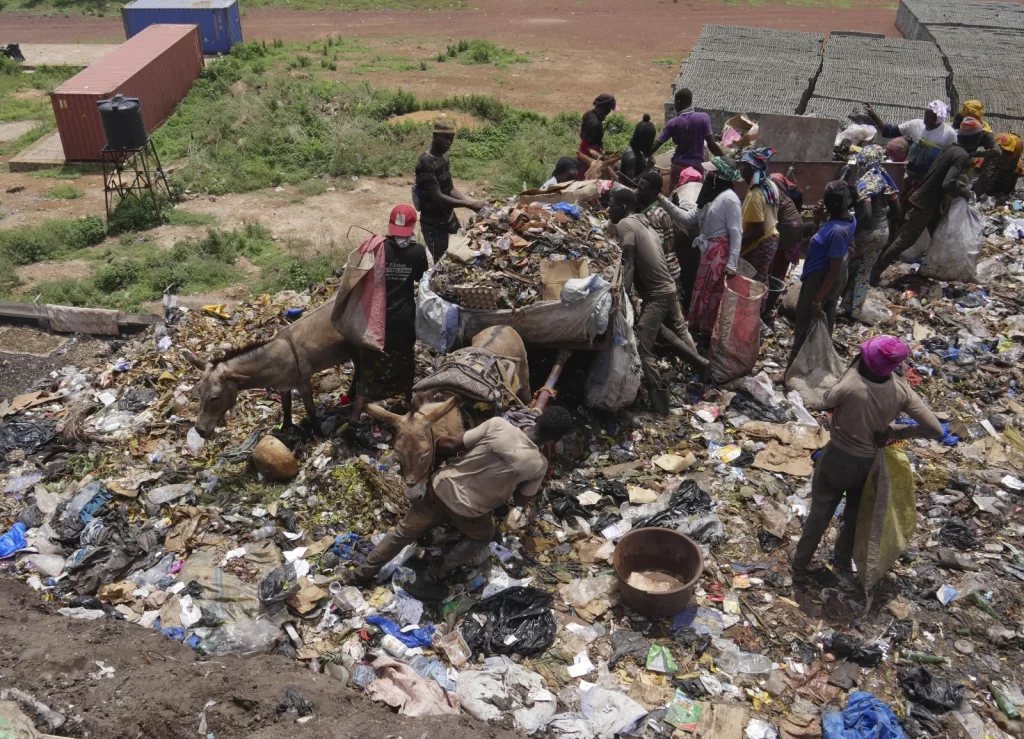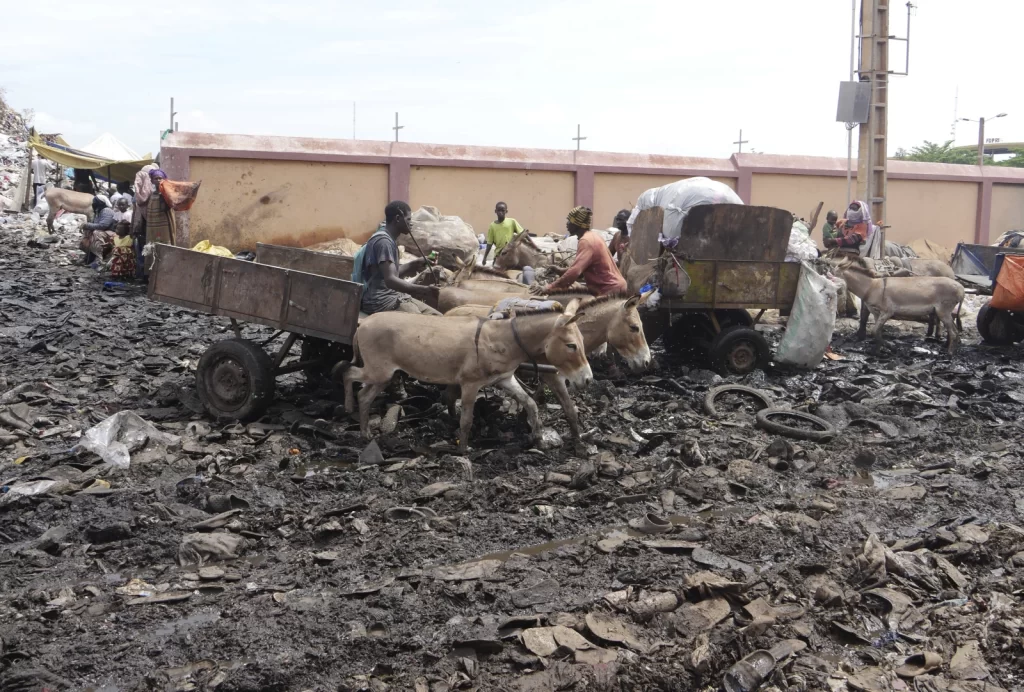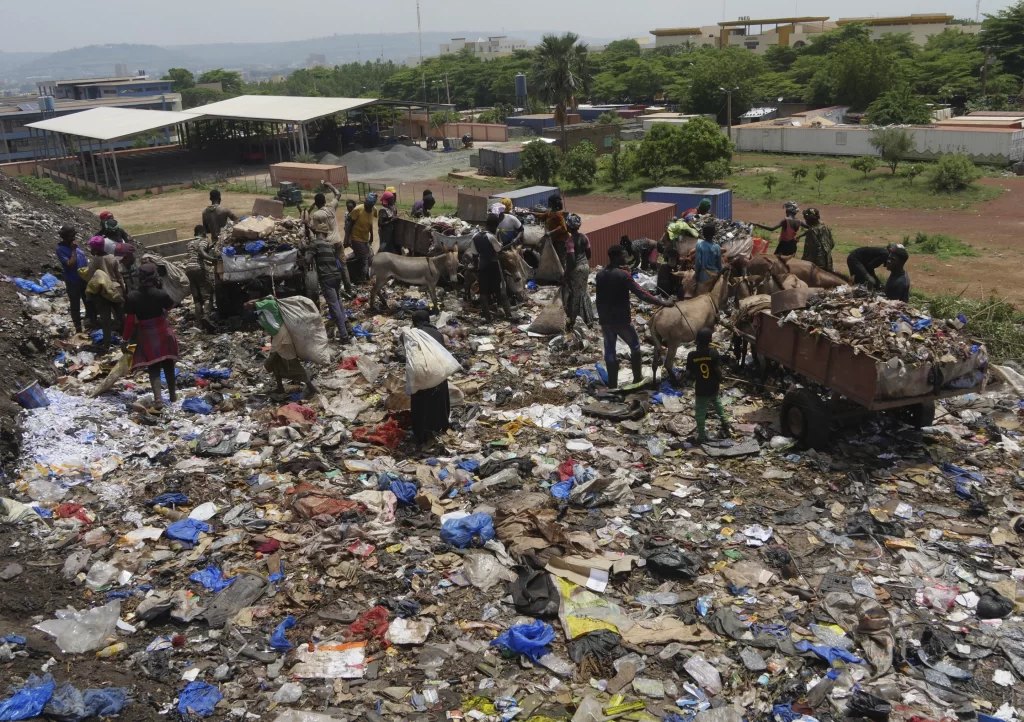Mali’s capital, Bamako, is facing a mounting waste management crisis as its population surges past 3 million, with residents increasingly turning to donkey-drawn carts for trash collection.

Yacouba Diallo, a trash collector using a donkey cart, told The Associated Press he can earn up to $166 a month. “It requires less investment than a truck,” Diallo said, highlighting the economic appeal of this method for youth seeking employment in a country with high unemployment rates.
The city’s rapid growth has overwhelmed its waste management infrastructure, leaving many streets dominated by piles of garbage. Donkey carts, able to navigate through traffic and reach areas inaccessible to trucks, have become a common sight.

However, this solution has raised concerns among animal welfare advocates. Amadou Doumbia of the nonprofit SPANA campaigns for replacing donkeys with trucks, citing concerns about overwork and hazardous conditions for the animals.
Bamadou Sidibé, a waste management consultant, pointed out systemic issues. “All the institutions that have to deal with the waste problem are not playing their part,” Sidibé said. He noted that the city lacks waste transfer sites meeting required standards.
In 2022, the World Bank approved $250 million to help rehabilitate a landfill outside Bamako and build a second one. The project, set to last until 2028, has yet to begin construction.

Local authorities, including Deputy Mayor Adama Kanté, blame residents for the problem. “Bamako is dirty because people don’t care about the environment or their health,” Kanté said, adding that residents are unwilling to pay for waste disposal.
Some residents, like Boureima Traoré, agree, noting the lack of penalties for littering. “Instead of hiring a garbage collector who has to be paid, a lot of people wait until the rainy season to throw their garbage into the running water. It costs less,” Traoré said.

The waste crisis has also led to dangerous scavenging practices, with some residents searching through garbage piles for items to reuse or sell. This practice mirrors similar situations in other African capitals and can have deadly consequences, as evidenced by a recent landfill collapse in Uganda’s capital that killed at least 30 people.
As Bamako continues to grow, the need for comprehensive waste management solutions becomes increasingly urgent. The situation highlights the broader challenges faced by rapidly expanding African urban centers in managing basic infrastructure and public health concerns.
Source: apnews.com



